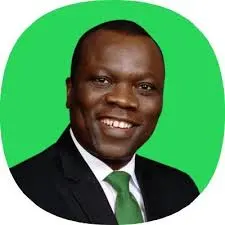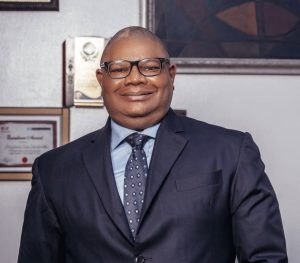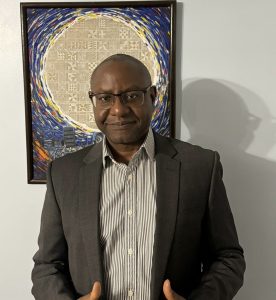I love to dance, sing and look good- Visually impaired Senator, Crystal Asige

Crystal Asige
I love to dance, sing and look good- Visually impaired Senator, Crystal Asige
Senator Crystal Asige was nominated to the 4th Senate in the 13th Parliament of the Republic of Kenya to represent persons with disabilities & Special Interest Groups. She speaks on her ten Bills at the parliament, aimed at boosting inclusivity and living standard of people with disabilities among other things, in this interview with NIKE POPOOLA
Despite obstacles that physically challenged people face, how did you rise to become a success story in the society?
I am a member of parliament in Kenya and my mandate is fundamentally to support and advocate for, and legislate around persons with disabilities, women and youths. They are the three categories that I represent. I am the kind of person who likes to take life as it comes and make sure that I’m not holding on too much to one particular path, a particularly dream, a particular ambition, because my life has taught me through acquiring a disability later in life that nothing is guaranteed. And even if you have plans, five years plans, 10 years plans, life will happen and you need to be able to know that okay, this has changed, accept it, adapt to it, and then, be willing to re-learn something that you didn’t know before. So, getting to success, I think that has been at the center of it, being agile and also I think, my life is quite colorful. I’ve had many experiences in my life, I have many talents that I have nurtured, and people around me who have supported me as well, I think all those things are a perfect mix to create a success in whatever somebody does. My disability is visual. I live and was born in Mombasa, coast of Kenya. When I was 14 years old, I started to realize that my eyesight was declining very slowly though, nothing too alarming because, in school, I used to have trouble seeing the blackboard. For example, I struggled to read my books. I just thought it was a matter of wearing glasses because my mom wore glasses, my dad as well as my brothers. But as the years went by, 14 years old 15, 16, it was really declining, very, very obviously. So it was in the university stage when I went for another checkup which I always do, it is when they told me in the UK, that, Crystal, something is very wrong with your eyesight. The pressure on your eyes is in the 40s, and supposed to be between 10 and 15 in a normal person’s eye. So I was three times more but, I had to go for checkups or for tests and finally, they diagnosed me with something called glaucoma, and glaucoma has no cure even until today. It’s more aggressive in black people, and because I was so young when it started around 14, of course, it will mean that I will go blind faster in life. Usually, it affects people who are in 70, 80 years of age. But because I was only in my teenage years, I was told that by 25, Crystal, we are sorry but we predict that you will be blind by then.
How did you feel when the blindness set in?
I felt angry, I felt angry at God, I felt angry at this dead end that seemed to have been given to me even though, I had a lot of plans for life, I wanted to act, I wanted to get into film and theater journalism as well. I thought my experience will take me to places, and now I’m being told that I’m going to go blind by the time I am 25, a time when everyone else around me is starting their lives, exploring to know themselves, and then me, I’m being told no, yours is going to be a dead end from here. So, I was very angry, and I also didn’t accept it at the beginning. I was like, these people don’t know what they’re talking about, they don’t know my God, they don’t know that miracles happen just like this. So I was definitely in denial, I thought it would not happen but it did happen and I had a hard time dealing with it. I started going out to party too much, trying to escape the reality, doing things that will help me to forget what I’ve been told that it is in my future. And once I got over that phase, thankfully, my family really came around me and said, whatever you think that you can do, we’ll support you in doing so. That’s why I say that support is really important from people around you, the close people around you, they really poured into my spirit.
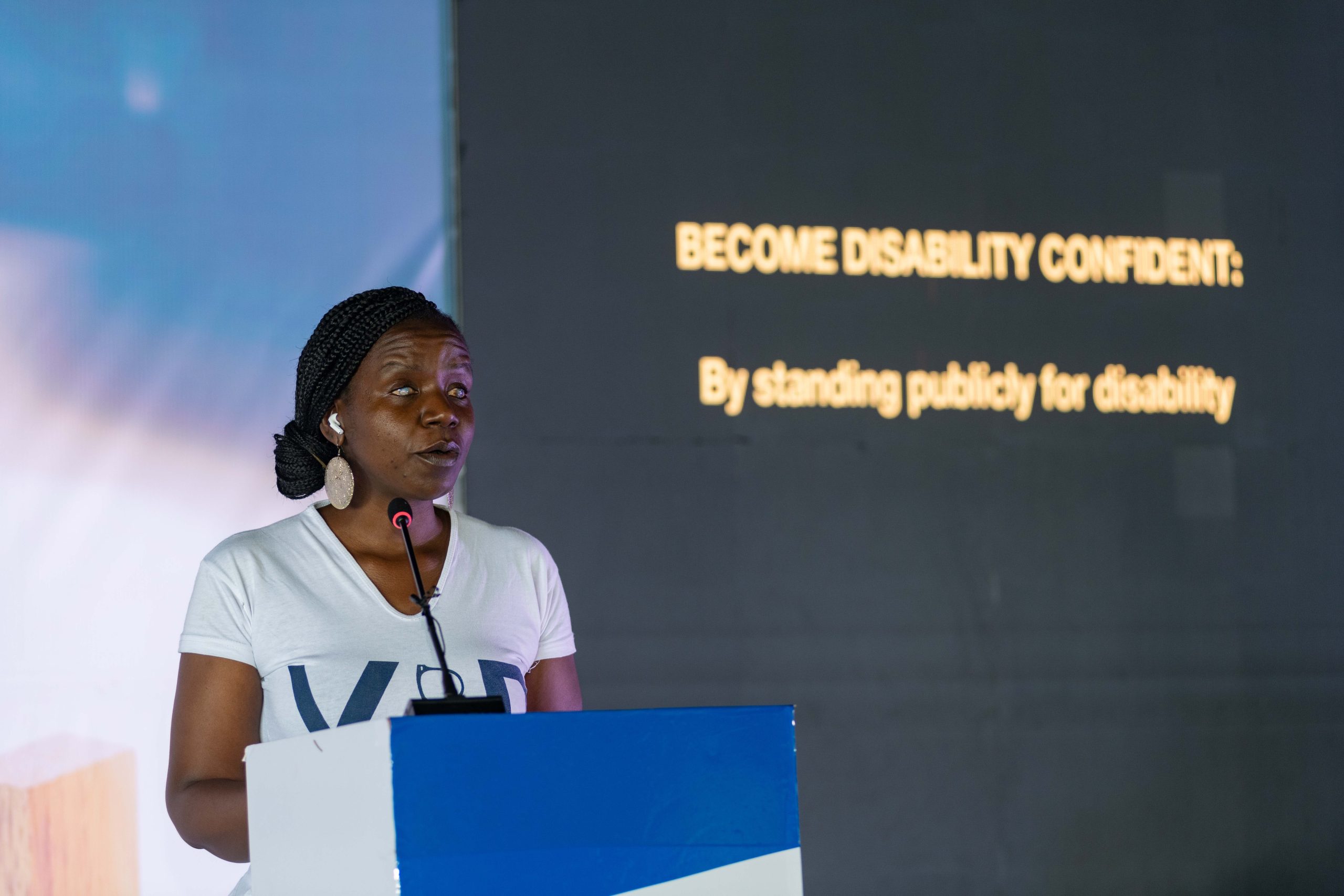
What should be the role of the society to those who have disabilities?
I think society should accept that there are people in the society like that, that’s it. I think that’s the first thing because that will change people’s mindset and mindset is key in anything, in any chain whether it is behavior, whether it is governance change, whether its democratic, whether its industry, it is all led by human beings who think, and if their mindset is negative or skewed in a way that is limiting, then of course, everything that they create or they say or they do will reflect that limitation. But if society were to be open like the Europe’s of the Western world, they’re a little bit more ahead than us in Africa. We also have these issues of traditional cultures, these beliefs of magic and witch and curses, those kinds of things. People with disabilities unfortunately really suffer a lot because of those traditional beliefs. So, if we’re able to change the mindset, I believe that it will change everything for people with disabilities. And then also, an environment that is enabling for people with disabilities is important. So, once the mindset changes, we’ll need to look at the environment around you, our communities, our society because, like I said, it is only when I meet a barrier that I remember I’m disabled.
You travelled from Kenya to attend the Insurance CEO conference organized by Continental Re in Zimbabwe. How convenient has it been attending such programme?
In this conference, people have been helping me, people have been giving me what I need. If I need to go here, there’s assistance. But if I were to be alone, that’s when I would realize I’m disabled because nobody’s assisting me. If I’m being ignored and being excluded, that’s when I will know about the disability. So, only when barriers are removed from the society, for example barriers to healthcare, barriers to accessing education for people with disabilities, barriers to employment, stereotyping is also a barrier, we call them attitudinal barriers. Once those barriers are removed, then disability will no longer be a big issue.
While addressing the audience at the insurance summit, you described the way you dressed and choice of big earrings, which showed you have taste for fashion. What determines your style?
I think because I used to at some point in my life, I like to look good. Just because I’m a person with disability doesn’t mean that we are different. We’re also into fashion and making sure that we present well, and like I said, if I can’t see you, then I want you to see someone who’s put together. People have this perception of disability like, they’re just this or they’re just that, you don’t expect much from a disabled person in that area of fashion. So, I decided to make it something that is important to me. At home, what I do with my clothes actually, I have my wardrobes set up in a way that the jeans are in one place, all the shorts are in one place, different types of clothes are in different areas, different piles and then I arranged them according to material. For example now, I know I’m wearing my white Ethiopian dress which has like a blue African person in the middle. I know that because when I bought it, I went to the market, and when we’re buying it, I was asking my friend who took me, what does it look like, describe it to me so I touched it as she described and then in my mind, I’m creating a mental picture of what I’m being described for about the dress. And then when I buy it, I take it home and I know this is my white dress.
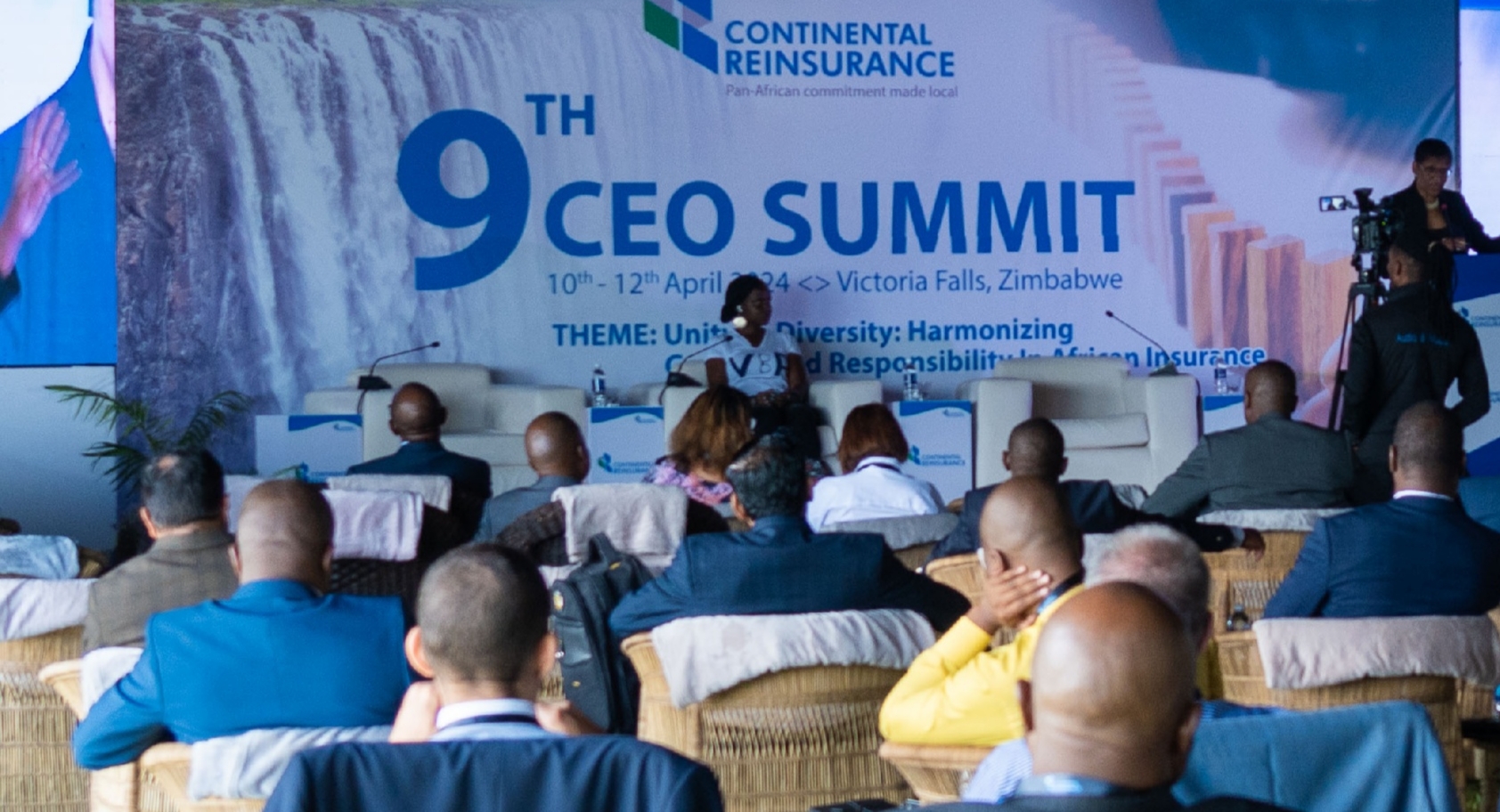
You recently released a new album. Why do you love music?
I love music because it’s my first love, it’s what really got me through a lot of depression, self esteem issues, confidence issues, and it gave me solace to have a place where I can express myself, cry if I want to cry. I put the music on and I sing out loud and cry, if I’m having a hard time. So it means a lot more than just listening to a nice song or whatever. For me, music is like life, it continues to give me life so even though now I’m in Senate, I continued doing music. And I still record in the studio at least once a week because it also gives me a place to remove myself from this crazy political scene, because it’s very toxic and it can be very heavy on your spirit. So, I use it as well as an escape to go to studio. I put my phone on airplane mode, don’t call me if you want to find me, if you want me to pay for your child’s school fees, if you’re sick, if you have a problem, this time I’m in studio so please leave me alone, so it’s working for me in those ways as therapy, and also a way to express the different parts of who I am because I’m not just a serious politician, but also just a fun young African girl who loves to dance and sing.
You are working on ten disability Bills in Kenyan parliament. Can you speak about them?
My subject matter, my expertise is in disability and inclusion and diversity. So, when I first started in the Senate which was only a year and a half ago, it’s my first time in Parliament and I am the only visually impaired Senator currently, and the first one actually to be in Parliament. I decided that I’m going to do my absolute best to push as many Bills as I can which is going to help the society to become more inclusive. So far, I’ve been able to pass in the Senate four bills out of the 10, and then, the other six, I’m still pushing them right now. The four bills are the Persons with Disabilities Bill of 2023; the Kenya Sign Language Bill which seeks to have sign language be taught in primary school level. If it gets passed, it will also mean that we’ll have more sign language on television, in public addresses by heads of state for example, on the news, and also in maybe, things like legal proceedings. There should be sign language interpretation, that kind of thing, and we can ensure that the deaf community also is included in our languages. Then, the next is the Learners with Disabilities Bill, focusing on education for people with disabilities. Our schools are very non inclusive, and what I’m saying in my Bill is that, instead of having special needs schools separate from the ‘normal schools’, we should have integration because real life is not segregated. Even if you put a child in special school, and they grew up in a special school with people who only look like them, and have disabilities like them, when you say okay, now you’re 18 years old, go and look for work, go and live in the normal world, of course, it will be a very difficult transition. So, what I’m saying in my Bill is, learners with disabilities should be integrated in the normal traditional schools, So, we should try to move into, I call it inclusive education, have everyone, all the kids in one classroom learning from each other, living with each other, accepting each other and that means when they grow up, they’ll be like she is visual impairment but I’ve been in school with her since class two, I know how to treat her and I love her and accept her, things like these will change mindset. That is basis. Then, the last one I passed is called the Startup Bill. Looking at startup ecosystem, trying to make it more holistic and inclusive for people with disabilities and those trying to start their businesses, their small innovations, tech e.t.c. Because of course I’m a young person, I know what it’s like to open a business for People With Disabilities, and the challenges. So, those are the four that I’ve passed and the others, the six that are remaining are surrounding the environment, the transport systems our roads, our buildings like the built environment. How can we make them more disability friendly so that I can enter a shopping mall, I can enter a school campus, I can enter a courthouse, a church wherever it is and feel like as a visually impaired person, I can use this building and not feel it’s not for me.
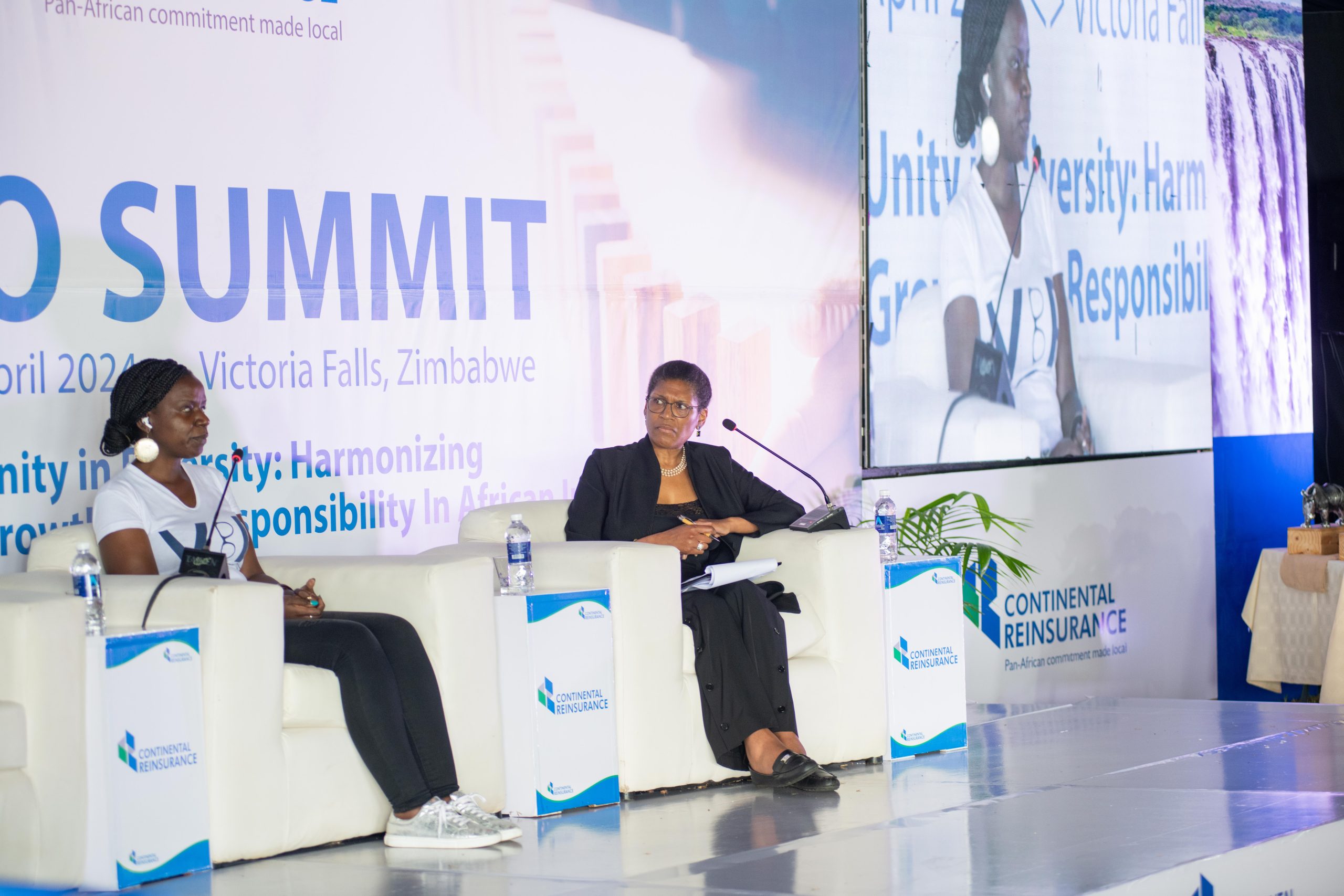
ABOUT SENATOR CRYSTAL ASIGE, MP, NOMINATED SENATOR FOR PERSONS WITH DISABILITIES & SPECIAL INTEREST GROUPS.
Nominated to the 4th Senate in the 13th Parliament of the Republic of Kenya to represent persons with disabilities & Special Interest Groups, Senator Crystal Asige is also a Kenyan Top 40 Under 40 Winner of 2023, a multiple award winning musician, diversity equity and inclusion consultant, disability rights advocate, inclusive mobility and transport practitioner, accessibility auditor and a public speaker.
In Parliament, she holds leadership positions as Secretary General of the Kenya Disabled Parliamentarian Association and PWD Chair in the Kenya Women Parliamentarian Association, with
membership across several others. Widely known as VIP (Visually Impaired Person) among her following, Sen. Crystal Asige is now good-humouredly known as the 4th Senate’s VIP (Visually Impaired Parliamentarian).
With a bachelor of arts degree from the University of the West of England, Bristol, experience having worked at BBC Bristol, and other international media houses, in Senator Crystal Asige’s professional communication and advocacy background plus her active music career, lies the sweet-spot for her passion for the juncture between legislation, education and entertainment, to promote the rights and fundamental freedoms of everyone and celebrate diversity – no matter one’s ability or disability.
As a singer/songwriter and music producer, Senator Crystal Asige’s eclectic and zealous fan base propel her Chakacha infused music far beyond the Kenyan borders to build her vision for the undeniable power of music and lyrics, to further deflate man-made stereotypes and historical exclusions through her voice. #ByFaithNotBySight is not just the brand ID that fans identify her with, but a daily reminder to live both fearlessly and humbly.
With a focus on Sustainable Development Goal 10 and 11(Reduced Inequalities and sustainable cities and communities respectively), Senator Crystal Asige speaks and consults, both locally and internationally, on projects surrounding universal design and accessibility best practices, in order to achieve Inclusive Mobility and Development in Africa.
As the first and only senator to cross-cut all three special interest groups, i.e. persons with disabilities, women and youth, with an additional representation of creatives, as well as currently leading with the highest number of bills in the Senate, Senator Crystal Asige seeks to push the envelope in creating legislation and personal sensitisation around the
intersectionality of being a young, African, woman politician with an invisible disability living in the global South, and challenge the unconscious and entrenched prejudices plaguing persons with disabilities.
The models she sets up to disrupt negative perceptions using what she calls ‘art-ivism’ and ‘edu-tainment’, she hopes will have exponential impacts during her time in the Senate and in society at large, in policies, equitable allocation of budget resources, as well as the inclusion and treatment of persons with disabilities, women, youth and creatives.
Outside the corridors of Parliament, Senator Crystal Asige is synonymous with the Ability Programme, a Fellow of the Harvard Law School Copyright 2022 cohort, Enterprise for Peace Scholar 2022 (Dutch Ministry of Foreign Affairs) and a One Young World Ambassador. Formally an Amnesty International
Kenya board member, Senator Crystal Asige is also a member of the Africa Network of Walking and Cycling, Kenya Transport and Road Network, Nairobi
Disability Caucus, Vice Chair of the Glaucoma Society of Kenya and a published researcher and blogger.
Sen. Crystal Asige continues to give High energy and thought provoking keynote addresses in Parliament, to public and private organisations on her colourful life experience and disability mainstreaming work. She has spoken before Ophthalmology Society of Kenya (OSK) Kikuyu Hospital, Safaricom, British American Tobacco, Young African Leaders Initiative (YALI), United Nations and One Young World Summit inter alia.


